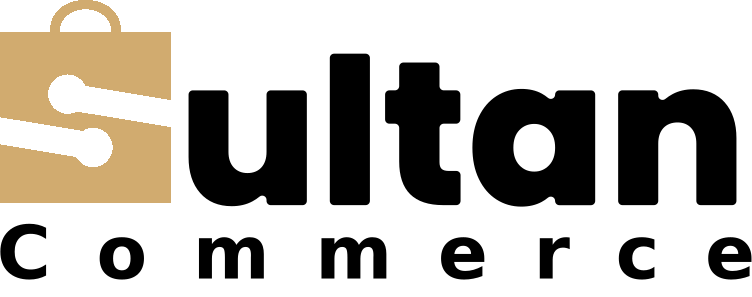In building a website, one of the very first decisions that you’ll need to make is the selection of the right content management system for your website. With so many varieties of options available, selecting the most suitable platform for your business needs can be a more exciting and important decision. WordPress is often quoted as one of the best CMS platforms, but do you really think it is the right fit for your website? This blog post will cover the various pros and cons of WordPress to help you determine if it is the best CMS for your website.
What is WordPress?
WordPress is basically an open-source content management platform that is covered by around 43.2% of websites, equating to 532 million websites as of 2025 statistics. Originally developed as a blogging platform, WordPress has grown into a robust and fully customizable content management system capable of powering all types of websites from personal blogs to professional portfolios, corporate websites, and online stores.
Some Reasons Why It Is So Popular?
1. Ease of Use
WordPress has wide-spread popularity among many developers due to its larger user-friendly features and intuitive interface. Having its user-friendly dashboard, even beginners learn how to navigate the dashboard and manage their websites. Creating and publishing the content is simple, and for most of the tasks, no coding knowledge is required. If you are a small business owner or a blogger, WordPress customization allows you to focus on creating the content without getting deep into technical details.
2. Customization and Flexibility
WordPress provides some great functionality in both design and functionality. There are thousands of themes and plugins, in terms of free or paid, allowing you to customize your website look and add new features. Whether you want to create an online store, a portfolio, or a blog, WordPress has many new tools to make it happen. Having its open-source nature, developers can create custom solutions to meet the specific needs of the website.
3. SEO-Friendly
Search engine optimization is crucial for getting your website noticed among people, and WordPress has a great grip in that area. It features built-in SEO capabilities and integrates with popular plugins like Yoast SEO. These plugins help you to optimize your content, meta tags, and the site structure, which can improve your visibility on the search engines like Google and Edge. More than that, a wordpress site can produce a clean structure, well-coded that is favored by search engines.
4. Responsive Designs
Having a website that works well on smartphones and tablets is essential in today’s mobile-first world. WordPress themes are typically responsive, which means they can automatically adjust to different screen sizes. It’s looks great on the different screen sizes. It ensures your website looks great on any device, which improves its SEO and its user experience and boosts its SEO rankings.
5. Scalability
To support everything from personal blogs to the high-traffic websites and many large enterprises, wordpress is a versatile tool to cover everything. As your website grows, it offers scalability options to help accommodate increased traffic and larger content volumes. This level of scalability gets through the use of plugins, caching, and optimization techniques, allowing WordPress to grow with your business.
Some Key Drawbacks of WordPress
WordPress has many drawbacks to discuss if it is a great CMS platform for work. Let’s take a look at some potential drawbacks you should consider before choosing the WordPress option.
1. It’s Major Security Lacks
The popularity of WordPress makes it a great target for most hackers. Although WordPress is generally secure, the use of many outdated plugins, weak passwords, and hardly maintained themes can expose your site to some security risks. It remain crucial to keep your version of WordPress, themes and plugins up to date and to use the strong security measures like 2 factors to protect your website.
2. Speed and Performance
Sometimes, if someone installs too many plugins or large, unoptimized images, WordPress websites can experience slow loading times. To improve performance, you’ll need to use caching, plugins, and a CDN and optimize its images. Without proper maintenance, many WordPress websites can go slow, which can bring down SEO rankings and drop the user experience.
3. Frequent updates
WordPress, along with its themes and its plugins, requires some regular updates. While these updates are important for security and functionality, they can be time-consuming and can break your website if you don’t manage your website properly. Regular website maintenance is required to make sure everything runs smoothly, creating problems for students that want more hands-off website solutions.
4. Fewer Customization Options for Non-Developers
While WordPress is highly customizable, doing more customizations frequently requires high-level coding knowledge. If you’re looking to create a website with very specific features or a complex design, you may need to hire a developer who can do better customizations. often requires coding knowledge.
While WordPress is highly customizable, making extensive customizations often requires coding knowledge. If you’re looking to create a website with very specific features or complex designs, you may need to hire a developer to help with customization.
This is a drawback for the users who can have complete control over the website without needing to understand the code. This could be a drawback for users who want complete control over their website without needing to understand code.
Pros: Why Should You Prefer WordPress?
It is a fantastic choice for many websites due to its ease, flexibility, and scalability. For most medium-size bloggers, businesses and e-commerce stores, it is an ideal platform. However, you advance customization and are highly specialized websites.
If you require advanced customization and a highly specialized website or are concerned about security and its performance. You may consider other CMS options like Joomla, Drupal, or a website builder like Wix or Squarespace.
Ultimately, whether WordPress is the best CMS for your website depends on your specific needs, your technical expertise, and the long-term goals of your website. If you prioritize ease of use, flexibility, and SEO, WordPress is likely a great fit for you.
Conclusion
WordPress is one of the most powerful and widely used CMS platforms available. Its extensive features, user-friendly design, and scalability make it a solid option for most websites. However, it’s important to weigh the potential drawbacks, such as security concerns and the need for regular updates. By carefully considering these factors and your unique needs, you can make an informed decision about whether WordPress is the right CMS for your website.




